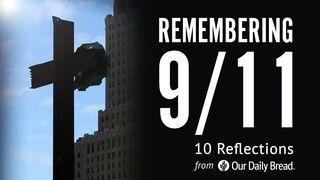Whole Life, Whole Bible: Journey through ScriptureSample


19: For the sake of David
It is 40 years since David’s death. In spite of his achievements, Solomon’s idolatry has brought God’s judgment upon himself and upon the kingdom (1 Kings 11:9–13).
As the kingdom falls apart, we find ourselves asking, ‘Who is in control?’ Even before Solomon’s death, Jeroboam is encouraged to rebel by a prophecy: ‘I [God] am going to tear the kingdom out of Solomon’s hand and give you ten tribes’ (11:31). On his father’s death, Solomon’s son, Rehoboam, is crowned king. Jeroboam tries to strike a deal with him but is ruthlessly rejected. The Israelites respond with an immediate declaration of independence: ‘To your tents, Israel! Look after your own house, David!’ But this, we read, ‘was from the Lord, to fulfil the word the Lord had spoken to Jeroboam’ (12:15).
Thus, the kingdom is divided, Jeroboam ruling the north (Israel) and Rehoboam the south (Judah). Both nations ‘did evil in the eyes of the Lord’, a refrain repeated throughout the chronicles of the kings, and both nations are ultimately judged — for the Bible never suggests that God’s sovereignty nullifies human responsibility.
Israel, conquered by the Assyrians, was dispersed in 722bc, never to be restored, but the story of Judah was different. ‘For the sake of my servant David,’ God says, the southern kingdom will have a future (1 Kings 11:32–36). Even so, Judah’s constant rebellion leads it too into exile, over a century later.
Yet the promise of return echoes through the declarations of the prophets. Ezekiel prophesies (37:15–28) that the Jews will return from exile as one nation, and ‘my servant David will be king over them, and they will all have one shepherd’ (v. 24). In spite of the return of Judah to Jerusalem, the true fulfilment of this prophecy begins with the coming of ‘great David’s greater Son’ (as James Montgomery describes him in the hymn ‘Hail to the Lord’s Anointed’, 1821). We might think of Jesus’ words in John 10:16: ‘I have other sheep that are not of this sheep pen. I must bring them also… and there shall be one flock and one shepherd.’
As it was for David’s sake that God had mercy on Israel, so it is for Jesus’ sake that he has mercy on us. Although we are responsible for working out our own salvation (Philippians 2:12), we cannot earn his favour: it is pure sovereign grace.
For further reflection and action
- Thinking about the Israelites’ repeated disobedience and its consequences, do we sometimes presume on God’s grace? How do we understand the relationship between God’s sovereignty and our responsibility in our own lives?
- The people of the northern kingdom, Israel, who eventually returned from captivity, mingled and intermarried with the Assyrians and were called Samaritans, after their capital city, Samaria. From the Gospels we learn about the antagonism between Jews and Samaritans. What divisions of a historical, national, ethnic or religious nature impact our country and our churches?
- Jesus said, ‘Every kingdom divided against itself will be ruined’ (Matthew 12:25). Do we too readily accept divisions in the global church and in our local churches today? What can we do about them?
Scripture
About this Plan

This 50-day reading plan walks you through the story of the whole Bible, and helps you reflect on how it shapes your whole life – at home, at work, in the neighbourhood. The bite-size readings and real-life application questions help illuminate God’s plan to renew all areas of life. Written by Antony Billington, Helen Parry, and Margaret Killingray, from the London Institute for Contemporary Christianity (LICC). Originally published by BRF.
More
We would like to thank LICC - The London Institute for Contemporary Christianity for providing this plan. For more information, please visit: https://www.licc.org.uk/about









